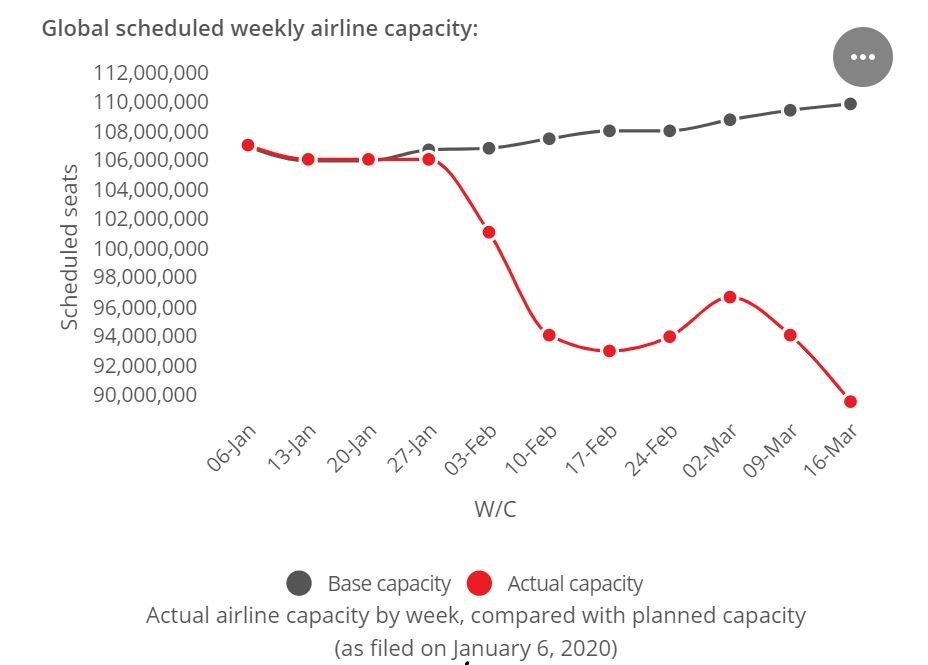
Welcome to Routes’ rolling COVID-19 coronavirus coverage, featuring the latest news and airline updates.
Friday 27 March
LatAm market update
Capacity dropped across all regions in Latin America last week (w/c March 16) albeit at a slower rate than other regions around the world. However, many carriers have since announced or enacted cuts, meaning the reduction will be much more pronounced over the coming weeks.
As of March 26, there have been 2,567 confirmed COVID-19 coronavirus cases in Brazil—the largest aviation market in Latin America—plus a further 502 in Argentina, 1,306 in Chile, 1,211 in Ecuador, and 558 in Panama to name but a few countries.
https://infogram.com/covid-latam-capacity-withc-16-march-1ho16v8q58zx2n…
Latest Airlineroute posts
Emirates NS20 operations as of 0930GMT 27MAR20
British Airways April 2020 Long-Haul operations as of 1335GMT 26MAR20
Fiji Airways suspends International service 29MAR20 – 31MAY20
Follow Airlineroute for all the latest COVID-19 flight changes
WTTC: 75 million travel and tourism jobs at risk
The World Travel & Tourism Council (WTTC) has urged governments to prevent “a catastrophic collapse” in the travel and tourism industry following the spread of the COVID-19 coronavirus.
WTTC implored G20 leaders to assign resources and coordinate efforts to rescue major travel businesses such as airlines, cruises, GDS, hotels and technology companies.
The organization stressed that one million jobs are being lost each day in the sector and the GDP loss to the world economy could be up to $2.1 trillion in 2020.
“The number of jobs now at risk in the global travel and tourism sector is a staggering 75 million, bringing real and profound worry to millions of families around the world,” WTTC president and CEO Gloria Guevara said. Read the full story.
The Routes App
https://twitter.com/routesonline/status/1242464948409651202?s=20
Thursday 26 March
Significant US airline assistance included in Senate COVID-19 bill
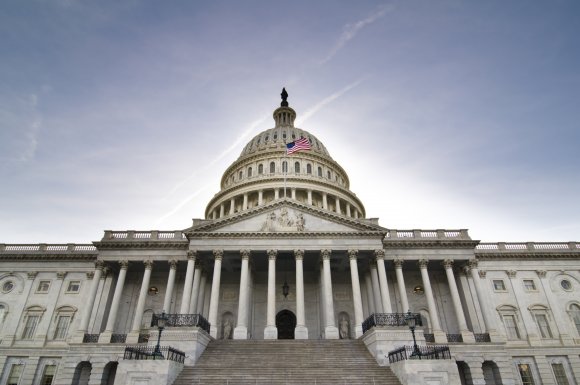
The US Senate passed the largest economic relief legislation in US history after days of heated negotiations between Democratic and Republican lawmakers and the Trump White House, providing a lifeline to a reeling airline industry that has made unprecedented capacity cuts in a short period of time as demand has plummeted in response to the COVID-19 pandemic.
Some $61 billion in financial aid is directed to US airlines as part of the more than $2 trillion package cleared by the Senate overnight. The House is expected to pass the bill Friday, sending it to President Donald Trump’s desk to be signed into law. The legislation also includes $10 billion in aid for US airports.
The bill includes $25 billion in payroll grants for passenger airlines and $4 billion for cargo airlines, in addition to $29 billion in loans and loan guarantees. Some airline contractors including caterers will also be awarded grants worth $3 billion. All grant money must go toward payroll expenses and airlines that accept aid will be barred from furloughing employees through Sept. 30.
In addition to the grants and loans, carriers will also enjoy relief from certain aviation excise taxes through 2020, although they will not be granted rebates for taxes paid so far this year as had been requested through Airlines for America (A4A). Read the full story.
Flybondi suspends flights
Argentinian LCC Flybondi is suspending all flights until May 1, saying it was “a fundamental time to make responsible and socially conscious decisions” to halt the spread of COVID-19.
However, the carrier said it would make itself available to the authorities for “repatriation flights, the transfer of people carrying out humanitarian missions, as well as the transport of medicine and food.”
“This pandemic has generated a global crisis and at Flybondi we know that this is the time, more than ever, to act for the good of society,” CEO Sebastián Pereira said.
“For this reason, our main priority now is to take care of the general population, among whom are our families, our employees and our passengers. It is not easy for an airline to suspend their operation, however in line with the measures that were taken in our country, we believe it is very important to protect ourselves so that we can return stronger when everything is better.”
Air Canada begins cargo-only flights
Air Canada has begun using its aircraft to operate cargo-only flights to Europe with more services planned for Central and South America. The aircraft on these flights carry no passengers, instead moving time-sensitive shipments including medical supplies to combat COVID-19.
“Although we have announced very significant temporary capacity reductions and our passenger flights are largely dedicated to bringing Canadians home, Air Canada’s aircraft and our expertise in handling cargo are valuable assets that we can use to move medical supplies and other essential goods to keep the world economy going,” Air Canada’s VP of cargo Tim Strauss said.
Latest Airlineroute posts
ETIHAD 10APR20 – 30APR20 operations as of 1240GMT 26MAR20
Fiji Airways suspends International service 29MAR20 – 31MAY20
Air China April 2020 International service adjustment as of 1120GMT 26MAR20
Asia-Pacific market update
Scheduled airline capacity in North East Asia nudged up by 0.1% last week (w/c March 16) to 13.9 million departure seats following a decline of 1.1 million seats during the previous seven days. However, all other markets in the Asia-Pacific region experienced a drop, with South Asia down 3.6%, South East Asia and Central Asia each down 2.2%, and Southwest Pacific down 1.2%.
https://infogram.com/covid-asia-capacity-withc-16-march-1hzj4onr5x1o2pw…
Delta operating cargo-only flights with A350s, 777s
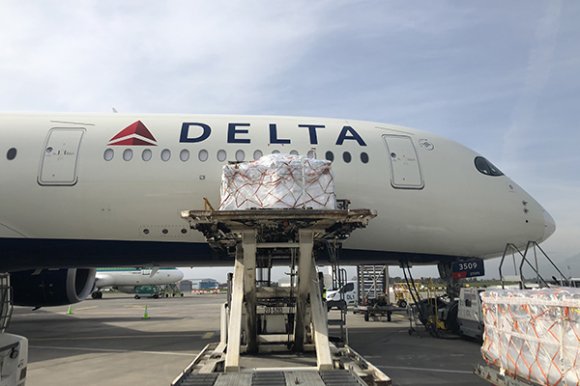
Photo credit: Delta Air Lines
Delta Air Lines has become the second major US passenger airline to utilize grounded passenger aircraft for cargo flights amid the COVID-19 crisis.
Delta operated a cargo-only Airbus A350 flight from Dublin (DUB) to Atlanta (ATL) carrying medical supplies on March 24. The airline expects to operate more cargo flights to/from Dublin, noting the A350 carried more than 32,000 lbs. of pharmaceutical supplies on the March 24 flight.
Also on March 24, Delta operated two Boeing 777-200LRs from Los Angeles (LAX) to Sydney (SYD), carrying more than 80 tons of cargo. A cargo-only flight from Chicago O’Hare (ORD) to Amsterdam (AMS) ferrying US mail is expected later this week, the airline added.
Delta said the 777 can carry 42 tons of cargo while an A350 can fly 49 tons of cargo. Read the full story.
Wednesday 25 March
London City suspends all flights
London City Airport (LCY) has temporarily suspended all commercial and private flights from the airport until the end of April. “At this point in this fast-moving and unprecedented situation, we think this is the responsible thing to do for the safety and wellbeing of our staff, passengers and everyone associated with the airport,” LCY said.
In a statement, the airport added it was “keen to get back to normal and will be playing our part to help ease the crisis.”
“We are taking steps to make sure that, as soon as it is possible, the airport and our people will be ready to get you to where you want to be—connecting people with each other, businesses to opportunities and bringing tourism to London.”
https://twitter.com/LondonCityAir/status/1242831331559702528?s=20
Airline support ‘must come quicker’
Airline associations have welcomed the support of those governments around the world that have provided financial relief to airlines and urged other governments to follow suit before the COVID-19 crisis causes “more damage.”
According to IATA’s latest analysis released March 24, annual passenger revenues will fall by $252 billion if severe travel restrictions remain in place for three months. That represents a 44% decline compared to 2019.
“Airlines are fighting for survival in every corner of the world,” IATA director general and CEO Alexandre de Juniac said.
“Travel restrictions and evaporating demand mean that, aside from cargo, there is almost no passenger business. For airlines, it’s apocalypse now. And there is a small and shrinking window for governments to provide a lifeline of financial support to prevent a liquidity crisis from shuttering the industry.”
He stressed that governments need to understand that without urgent relief, many airlines will not be around to lead the recovery. Read the full story.
Virgin Australia makes domestic cuts
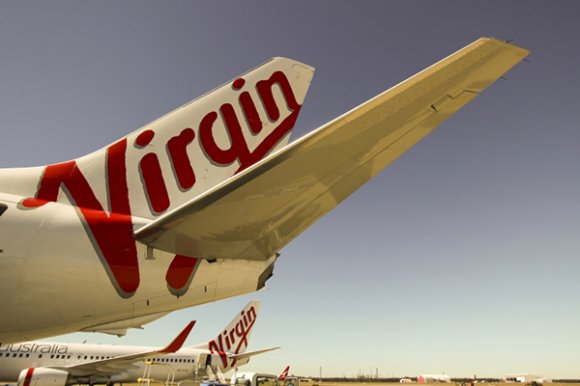
Photo credit: Virgin Australia
Virgin Australia Group has extended domestic capacity reductions from 50% to 90%, including the suspension of Tigerair Australia domestic services effective immediately.
With state border closures escalating across Australia, the group said it needed to take further action that will see the suspension of most of its domestic flying from midnight March 27 until June 14. Thie reductions are in in addition to the group’s decision to temporarily suspend international flying from March 30 to June 14 and close all Virgin Australia operated lounges across the network.
“There has never been a travel environment in Australia as restricted as the one we see today and the extraordinary steps we’ve taken have been in response to the federal and state governments’ latest travel advice,” Virgin Australia CEO and managing director Paul Scurrah said. Read the full story.
Mexican carriers reduce flights
Volaris will decrease capacity as measured by available seat miles (ASMs) for the rest of March and April by approximately 50% compared with its originally published schedule. The ULCC will also undertake several actions to reduce costs and maintain liquidity during this period of reduced demand and the resulting adjustments to network capacity.
Fellow Mexican carrier Interjet Airlines is also suspending all international passenger flights for the foreseeable future, subject to regulatory restrictions imposed by each country and the demand for each flight. Interjet will continue to serve its domestic markets.
“For us, nothing is more important than the health and safety of our customers and employees,” Interjet CEO William Shaw said. “We will continue to assess the situation daily and when the time is right, we will be back to flying internationally.”
GOL outlines domestic flight plan
GOL plans to maintain an “essential network” of 50 daily flights between São Paulo-Guarulhos (GRU) and the other 26 state capitals of Brazil. However, the airline’s regular regional and international operations will be suspended.
This brings the total reduction in GOL's total flight capacity to approximately 92% in domestic markets and 100% in international markets until early May.
“Through its role in Brazil’s transportation infrastructure and supply chain, GOL will continue to seek solutions and make its assistance available to the government in tackling this unprecedented challenge for the country,” the airline said in a statement.
SAA to suspend services from Friday
South African Airways (SAA) will suspend all its domestic flights with effect from March 27 until April 16 inclusive. The decision came after government announced a nationwide lockdown for 21 days aimed at combatting the spread of the COVID-19 coronavirus.
Last Friday, SAA announced the suspension of all intercontinental and Africa regional flights. All these flights remain suspended until May 31.
“SAA apologizes for the inconvenience caused as a result of the suspension of its flights. We trust that our customers and stakeholders will appreciate that these decisions are meant for the national benefit,” the airline said.
Fastjet, the low-cost African airline, said it would suspend all Zimbabwe flight operations from March 27.
European market update
Analysis of schedules data filed in early-January shows that airlines across Europe originally planned to operate more than 24 million departure seats from and within Europe last week (w/c March 16), of which 20.6 million were in Western Europe. However, the actual total was significantly lower as many carriers began to drastically reduce their networks and ground their fleets.
Looking at the planned capacity before the COVID-19 outbreak, more than 3 million departure seats would have been available from and within the UK, 2.8 million from Germany and 2.5 million from Spain. Read the full update.
https://infogram.com/covid-europe-capacity-withc-16-march-1hzj4on3zogo2…
Latest Airlineroute posts
British Airways week of 29MAR20 European operations as of 0850GMT 25MAR20
Ukraine International suspends scheduled service 17MAR20 – 03APR20
Thai AirAsia cancels International service 22MAR20 – 25APR20
Scoot 24MAR20 – 05APR20 operations as of 0400GMT 25MAR20
Tuesday 24 March
IATA: Revenues to be hit by $252 billion
IATA has updated its analysis of the revenue impact of the COVID-19 pandemic on the global air transport industry, estimating that industry passenger revenues could plummet $252 billion or 44% below 2019’s figure. This is in a scenario in which severe travel restrictions last for up to three months, followed by a gradual economic recovery later this year.
The association previously estimated a $113 billion revenue loss on March 5 before countries around the world introduced sweeping travel restrictions that largely suspended international air travel.
“The airline industry faces its gravest crisis,” said IATA director general and CEO Alexandre de Juniac.
“Within a matter of a few weeks, our previous worst case scenario is looking better than our latest estimates. But without immediate government relief measures, there will not be an industry left standing. Airlines need $200 billion in liquidity support simply to make it through.
“Some governments have already stepped forward, but many more need to follow suit.”
https://twitter.com/IATA/status/1242442366977372160?s=20
China prepares to lift Wuhan lockdown
China has announced it will lift the lockdown on Wuhan, the city at the epicenter of the COVID-19 pandemic, on April 8. Similar measures brought in to control the spread of the virus will be lifted Wednesday for other cities in Hubei province, of which Wuhan is the capital. The easing of travel restrictions follows a significant reduction in new infections in Hubei.
The Hubei provincial government said it would lift the control order on residents of the region, not including Wuhan, from March 25. The move will enable residents to travel to other places within and outside Hubei province.
US Congress continues wrangling over COVID-19 aid for airlines
US House of Representatives Democrats proposed sending airlines payroll grants totaling $37 billion, shortly after a Republican-led Senate bill that offered loans but not grants failed along procedural lines for the second time in as many days.
Introduced on March 23 by Democrat House Speaker Nancy Pelosi as part of a bill containing the lower chamber’s “Stage 3” coronavirus stimulus effort, the proposal would see carriers receive $58 billion in federal aid consisting of $37 billion in grants and $21 billion in unsecured loans and loan guarantees.
The bill is in stark contrast to plans from the Trump White House and Senate Republicans, which have both rejected the idea of extending direct payments and unsecured loans in favor of secured loans backed by carriers’ assets.
The Democrat-led House offer comes after the chief executives of the largest US passenger and cargo airlines jointly warned in a letter over the weekend that furloughs will be forthcoming unless the federal government promptly provides carriers relief in the form of workforce grants.
“Unless worker payroll protection grants are passed immediately, many of us will be forced to take draconian measures such as furloughs,” the CEOs warned. Read more on this story.
Iran's market changes
https://twitter.com/CAPA_Aviation/status/1242367837055913984?s=20
Middle Eastern changes
As well as suspending services to and from Abu Dhabi at 23:59 (UAE local time) on March 25, Etihad suspended transit traffic on March 23. Any passengers booked on connecting flights via Abu Dhabi to anywhere else on the Etihad network will not be permitted to travel.
Meanwhile, Qatar Airways said it continues to operate more than 150 flights per day. As of March 24, the airline is operating services to more than 70 cities worldwide.
“We are constantly reviewing our operations to see where there is more demand and requests, and wherever possible we will add more flights or bigger aircraft,” a spokesperson said.
Air Transat to halt flights by April 1
Air Transat has temporarily laid off about 70% of its workforce in Canada, affecting 3,600 staff. The final Air Transat flight prior to the full suspension of its operations is scheduled for April 1. The airline plans a temporary halt of all its flights until April 30.
As of March 18, some 65,000 Canadian Transat customers were at sun or European destinations. By March 22, about 40,000—or more than 60 % of them—had been returned to Canada.
“We are very much in agreement with the measures being taken to fight the spread of the virus and protect the public's health. As a community, we have to do what is necessary to stop the pandemic,” Transat president and CEO Jean-Marc Eustache said.
Latest Airlineroute posts
Vietnam Airlines suspends scheduled International service 25MAR20 – 30APR20
Turkish Airlines 28MAR20 – 17APR20 International operations as of 0530GMT 24MAR20
Singapore Airlines 29MAR20 – 11APR20 operations as of 1000GMT 24MAR20
Follow Airlineroute for all the latest COVID-19 flight changes
KLM seeks to maintain 57 routes
KLM plans to fly to 25 intercontinental and 32 European destinations between March 29 and May 3. The carrier said the flights would account for about 10% of its planned schedule. The intercontinental network will be operated with Boeing 777s and 787s, while its 747s will be taken out of the fleet early.
In Europe, the SkyTeam member plans daily service from Amsterdam to: Aberdeen, Barcelona, Berlin, Billund, Birmingham, Bristol, Brussels, Copenhagen, Dublin, Dusseldorf, Edinburgh, Frankfurt, Geneva, Glasgow, Gothenburg, Hamburg, Leeds Bradford, Lisbon, London City, London Heathrow, Lyon, Madrid, Manchester, Munich, Newcastle, Oslo, Paris, Stockholm, Stuttgart, Vienna and Zurich. The airline also intends to resume Rome service from April 4.
However, the carrier said that given many of the routes are subject to very strict travel restrictions, they could be cancelled at a later stage.
Norwegian secures bank support
LCC Norwegian said that two Nordic banks have obtained credit committee approval to provide the airline with a guarantee that will allow it to obtain government funding.
On March 19, the Norwegian government proposed a guarantee of NOK 6 billion ($541 million) for the Norwegian airline industry, of which up to NOK 3 billion ($270 million) is directed to Norwegian. The guarantee will be up to 90% from the government, provided that financial institutions contribute the remaining 10%. The guarantee scheme will consist of three tranches with a maximum two years maturity.
Most of Norwegian’s fleet is currently grounded and the airline has reduced its operations to a minimum. The LCC will now primarily operate domestically in Norway and Sweden and between the Nordic capitals, in order to maintain “critical infrastructure.”
Ryanair grounds flights until June
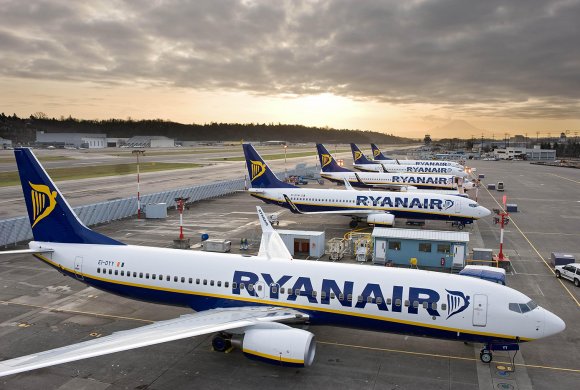 Photo credit: Ryanair
Photo credit: Ryanair
The Ryanair Group—which includes Ryanair, Buzz, Lauda and Malta Air—said it has offered aircraft to all EU governments to help in the fight against COVID-19 and would continue to try to get passengers back to their home countries.
“As Europe’s borders become congested or closed, it’s vital Ryanair plays its part to keep vital medicines and food supplies moving,” CEO Michael O’Leary said. Read more on this story.
Meanwhile, fellow European ULCC Wizz Air will temporarily close its Austrian base in Vienna from March 24 until May 1. The airline has this week grounded 85% of its fleet, remaining operational in Bulgaria, Hungary and Romania.
EasyJet has also taken the decision to ground the majority of its fleet. The airline will continue to operate a schedule of “essential services” on some routes—mainly to and from the UK—but these will represent a maximum of 10% of its usual capacity for this time of the year.
Airbus deals with deferal requests
https://twitter.com/AviationWeek/status/1242096053249363970?s=20
Infographic: the global picture
How are airlines around the world are responding to the COVID-19 pandemic? Our infographic looks at the latest capacity changes.
Cathay: Hong Kong COVID-19 aid package not enough
The Airport Authority Hong Kong (AAHK) announced a HK$1 billion ($129 million) package of financial aid for the city-state's aviation sector, although Cathay Pacific said more is needed to help carriers hard-hit by the COVID-19 crisis.
The bulk of the relief comes from a government waiver of HK$670 million in air traffic control charges to the AAHK for the 2019-2020 fiscal year which will be passed on to users, with another HK$330 million in waivers on other AAHK fees. The relief will apply from February to June, helping airlines, airport tenants and staff.
Hong Kong-based Cathay said it welcomed this latest round of relief measures. However, the carrier stressed it is not enough “given the significant deterioration” in its situation due to COVID-19, and challenges caused by tighter travel restrictions worldwide.
“We are of the view that significantly more much-needed immediate assistance, which is commensurate with the scale of this crisis, still needs to be provided,” Cathay said. Read the full story.
Monday 23 March
US airlines say ‘time is running out’ for federal aid package
US airlines remain in limbo after Congress stalled in its efforts to pass legislation to provide aid in response to the ramifications of the COVID-19 coronavirus pandemic.
Lawmakers are grappling over a massive package that would provide billions of dollars in financial help to US citizens and industries, including the airline industry.
Congressional negotiations are occurring in a political environment in which there is growing push back against a so-called “bailout” for airlines.
US carriers have come under fire for their strategy of share buybacks over the last several years. The practice, most notably touted by American Airlines CEO Doug Parker, was meant to show US airlines’ confidence in their future earnings as Wall Street remained tepid towards the industry because of past missteps.
US President Donald Trump has explicitly stated that any financial aid given to airlines should come with prohibitions on share buybacks. Read more on this story.
North American market update (w/e March 22)
https://infogram.com/covid-na-capacity-withc-16-march-1hdw2j7nowep2l0?l…
The total number of international departure seats from North America dropped by 191,000 last week to 3.4 million as the US-Europe travel ban came into effect. However, domestic capacity rose by 224,400 seats, with some airlines able to redeploy aircraft to home markets. This increase was mainly felt in the US where domestic capacity rose by 1.1% to 19.9 million seats.
The top five US domestic routes to benefit from increased frequencies and capacity last week, compared with the previous seven days, were Los Angeles-Seattle (LAX-SEA), Atlanta-Salt Lake City (ALT-SLC), ATL-El Paso (ATL-ELP), Nashville-Boston (BNA-BOS) and Anchorage-SEA (ANC-SEA).
Emirates, Etihad to suspend passenger flights on March 25
Emirates and other UAE airlines including Abu Dhabi-based Etihad Airways will suspend passenger flights for at least two weeks starting March 25 following a government edict.
The UAE government’s order ended a back and forth that saw Dubai-based Emirates first declare it would suspend all passenger flying in response to the COVID-19 coronavirus pandemic, and then reverse course after governments around the world pushed it to maintain a limited network.
The airline emphasized that it would continue to operate cargo flights, deploying Boeing 777 freighters to transport essential goods, including medical supplies.
OPINION: We should be proud to say we fly
Aviation has received some strong criticism in recent years from environmental groups, focusing on the top-line figures showing its carbon footprint. One of the most compelling counterarguments is the overall benefit—human and economic—which the industry brings.
It’s telling that the most profound criticism stems from the relatively wealthy Northern Europe, and not those parts of the world where a higher proportion of the population rely on travel and tourism. In the Philippines, for example, the World Travel and Tourism Council (WTTC) estimates that the sector contributes to around a quarter of the country’s GDP.
It’s in these places where any reduction in travel, such as that caused by COVID-19 coronavirus, has the most profound impact. According to the WTTC, one million jobs in the sector are currently being lost per day globally as a result of the pandemic.
WTTC president Gloria Guevara says this “relentless cascade of job losses is plunging millions of families into terrible hardship and debt, fearful of how to buy food and pay their bills.” The entire ecosystem is affected, and while many governments are offering business finance, sole traders such as taxi drivers and tour guides will receive no support.
IATA has called for “urgent emergency support” from the world’s governments of up to $200 billion for the airline industry, with millions of jobs at risk. Aviation can recover from crises, but to do that it needs airlines with capital to invest.
COVID-19 will pass. Not quickly, but eventually. Aviation’s an easy target for criticism, but hopefully the world’s governments have had a wake-up call as to just how important the sector is as they rebuild economies.
Maybe in six months’ time some of the current critics will be proud to say they fly.
Wesley Charnock, editor-in-chief, Routes
CAPA's daily update
https://twitter.com/CAPA_Aviation/status/1242005673401102336?s=20
Latest Airlineroute posts
China Southern temporary resumes A380 service to Los Angeles for Mar/Apr 2020
Thai Airways International cancels Australia / New Zealand service in 2Q20
Lufthansa 29MAR20 – 19APR20 Long-Haul operations as of 0900GMT 23MAR20
SIA makes sweeping cuts
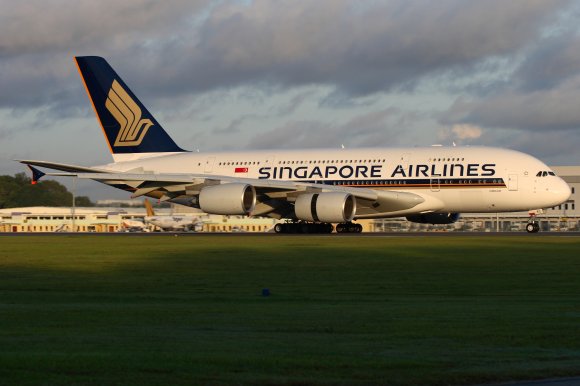
Singapore Airlines (SIA) is cutting 96% of the capacity that it had originally scheduled up to the end of April following the further tightening of border controls around the world over the last week to stem the COVID-19 coronavirus outbreak.
This will result in the grounding of around 138 SIA and SilkAir aircraft, out of a total fleet of 147, amid “the greatest challenge that the SIA Group has faced in its existence.”
The group’s LCC Scoot will also suspend most of its network, resulting in the grounding of 47 of its 49 aircraft.
SIA CEO Goh Choon Phong said: “Even during this crisis, our customers and staff remain our top priority. We continue to focus on getting as many of our passengers as possible back home safely and protecting the jobs of our people."
Lufthansa's schedule changes
Starting this week, a return flight schedule will be in effect for the airlines in the Lufthansa Group. This will initially be valid until April 19, 2020.
Deutsche Lufthansa AG executive board member Harry Hohmeister said: "This situation has a historic dimension. Hardly anyone wants to or is currently allowed to travel. That is why our returnee flight schedule is now essentially geared to the needs of European citizens who want to return to their home countries. We are now flying as many people home as possible!"
Long-haul flights are offered as scheduled from Frankfurt and Zurich. Lufthansa's intercontinental flight schedule from Frankfurt is as follows: 3X-weekly to Newark and Chicago (both USA); Montreal (Canada); Sao Paulo (Brazil); Bangkok (Thailand); Tokyo (Japan); and Johannesburg (South Africa).
In addition to a substantially reduced short- and medium-haul timetable (48 services from Zurich), SWISS will in future offer 3X-weekly long-haul flights to Newark.
Regarding Lufthansa's short- and medium-haul schedules, the airline still offers around 40 daily connections from its hubs in Frankfurt and Munich to the most important cities in Germany and Europe.
Eurowings' short and medium-haul flight program focuses on basic supply to the airports of Cologne, Düsseldorf, Hamburg and Stuttgart.
Sunday 22 March
KLM scales back European routes
KLM is continuing to scale down its European network. From today, the carrier will no longer fly to the following destinations until further notice: Graz, Austria; Zagreb, Croatia; Montpellier, France; Dresden, Germany; Bologna, Florence, Genoa, Milan, Naples, Rome, Turin and Venice, all in Italy; Ålesund, Kristiansand, Linköping, Sandefjord and Växjö in the Nordics; Gdańsk, Krakow and Wroclaw in Poland; Porto, Portugal; St. Petersburg, Russia; Istanbul, Turkey; Kiev, Ukraine; and Belfast, Durham, Inverness, and Humberside across the UK and Ireland.
Latest Airlineroute posts
Southwest Airlines suspends international service 23MAR20 – 03MAY20
United April/May 2020 International service update as of 0530GMT 22MAR20
Emirates March – June 2020 operations as of 0515GMT 22MAR20
Follow Airlineroute for all the latest COVID-19 flight changes
Saturday 21 March
Latest Airlineroute posts
Fiji Airways suspends 95% of International flights from late-March to May 2020
Royal Jordanian suspends scheduled service 17MAR20 – 31MAR20
Etihad NS20 Network changes as of 1255GMT 21MAR20
Friday 20 March
Avianca to suspend international service
Avianca is suspending all international operations and reducing domestic operations in Colombia by 84% from March 23.
The decision means the airline will be forced to ground 132 aircraft: 100 narrowbodies; 22 widebodies; and 10 ATRs. Avianca will use five Airbus A320s and five ATRs for domestic flights.
In a statement, Colombia's flag carrier said domestic operations will include service from Bogota's El Dorado International (BOG) to capital cities and some regions.
However, flights will be “subject to the evolution of the situation, availability and willingness of clients to travel and additional measures that may be taken by local and national governments that affect the operation.”
American resumes cargo-only flights
American Airlines’ first cargo-only flight in 36 years will depart from Dallas/Fort Worth International Airport (DFW) today (March 20), landing at Frankfurt Airport (FRA) tomorrow.
The Boeing 777-300—which had been grounded by the COVID-19 coronavirus crisis—will operate two DFW-FRA round trips over the course of four days, carrying only cargo and necessary flight personnel.
This is American’s first scheduled cargo-only flight since 1984 when the airline retired the last of its Boeing 747 freighters.
Qantas plans to return all parked aircraft to the skies
Qantas will park 150 aircraft, including all of the Australian flag carrier’s Airbus A380s, Boeing 747s and 787s. These will be spread around airports across Australia, with many stored at Avalon Airport (AVV) near Melbourne.
Qantas will also use some of its passenger aircraft for cargo-only flights.
The carrier had planned to confirm a tentative order for up to 12 Airbus A350-1000s by the end of March. However, Airbus has now given Qantas until the end of this year to make a final decision on the order, a Qantas spokesman said.
During a media conference call, Qantas CEO Alan Joyce said the airline intends to return all of the parked aircraft to operation when the current crisis is over. The group does not intend to sell or retire any due to the grounding. However, the airline is in discussions to raise money against the value of some of its newer aircraft such as the 787s, Joyce said.
Details of the planned grounding came after Qantas revealed plans to suspend all scheduled international flights for at least two months in response to the COVID-19 coronavirus pandemic.
US regional Compass Airlines to shut down
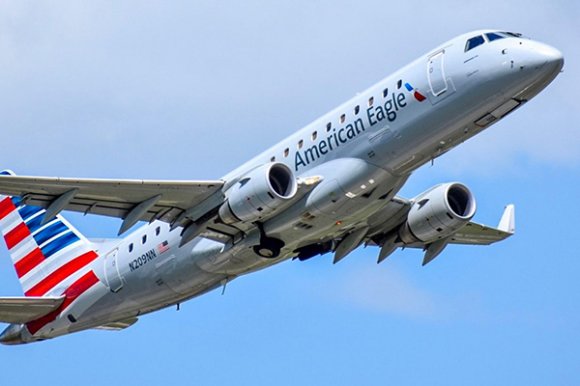
Compass Airlines, a regional carrier that feeds American Airlines’ mainline network, will cease operations in early April following capacity cuts by American that include a significant drop in flying from Los Angeles International Airport (LAX) as a result of COVID-19 coronavirus.
Rick Leach, CEO of Compass parent Trans States Holdings (TSH), relayed the news in a company memo on March 19.
American, like most airlines worldwide, is implementing major capacity reductions to meet reduced demand caused by the COVID-19 coronavirus pandemic. The Dallas-based carrier’s initial cuts, announced last week, included a 14% decrease in contracted flying by Compass. Leach had hoped Minneapolis-based Compass could survive under those conditions.
But American has increased its cutbacks as the demand shock from COVID-19 becomes clearer.
Message from Steven Small
https://twitter.com/routesonline/status/1240929832357310464?s=20
US State Department advises against all international travel
The US State Department has taken extraordinary steps as a result of the “global impact of COVID-19,” advising US citizens to avoid all international travel and those abroad to return home immediately.
The State Department’s March 19 travel advisory said US citizens outside the country who live in the US should arrange for an immediate return “unless they are prepared to remain abroad for an indefinite period.”
“Many countries are experiencing COVID-19 outbreaks and implementing travel restrictions and mandatory quarantines, closing borders, and prohibiting non-citizens from entry with little advance notice,” the State Department advisory said.
“Airlines have canceled many international flights and several cruise operators have suspended operations or cancelled trips. If you choose to travel internationally, your travel plans may be severely disrupted, and you may be forced to remain outside of the United States for an indefinite timeframe.”
The advisory came as US airlines scaled back international flying to a bare minimum and the Trump administration proposed sending US airlines $50 billion in secured loans.
Follow Airlineroute for all the latest COVID-19 flight changes
Thursday 19 March
US airlines make another round of COVID-19 cuts
US airlines have dropped the bulk of their flights for the next several months, forced to scale back to once-unthinkable levels of capacity by the total collapse in global air travel demand caused by the COVID-19 coronavirus pandemic.
In a companywide memo dated March 18, Delta Air Lines CEO Ed Bastian outlined plans to reduce systemwide capacity by 70% “until demand starts to recover.” International operations will see the largest cuts, with over 80% of international flying suspended over the next two to three months.
Bastian revealed that revenue for the month of March is now expected to fall by nearly $2 billion year-over-year, and April projections anticipate an even greater fall. To preserve cash, the company will defer nearly all capital spending, including all new aircraft deliveries, while parking more than 600 aircraft and accelerating the retirement of its Boeing 767s and MD-88/90s.
“We are having constructive discussions with the White House and Congress and remain optimistic that our industry will receive support to help address this crisis,” Bastian said.
“Cash preservation remains our top financial priority right now. Making swift decisions now to reduce the losses and preserve cash will provide us the resources to rebound from the other side of this crisis and protect Delta's future.”
United Airlines suspended service across 60% of its systemwide schedule, including a 42% reduction across the US and Canada and an 85% decrease in international flights.
Jet2.com suspends all routes until May
The parent company of Jet2.com expects the British LCC’s fleet to remain grounded until May at the earliest.
In a trading update to investors, Dart Group said the unforeseen level of travel restrictions imposed by governments across Europe in response to the COVID-19 coronavirus pandemic mean flights are unlikely to resume for at least six weeks.
Over the past week the carrier has conducted an “extensive” repatriation program to bring passengers home. This included a number of its Spain-bound services turning around mid-flight after the advice changed to avoid all but essential travel.
“Although we have a strong and prudent balance sheet with a £1.5 billion ($1.74 billion) cash balance at March 18, 2020 and long-term structured debt in relation to aircraft financing, given the escalating situation we have accelerated actions to underpin the stability of our business and improve cash flows,” Dart Group said in a statement.
Canadian airlines react to border closure with significant cuts
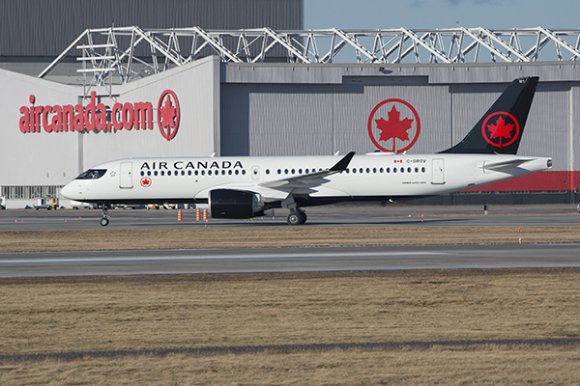
Canada and the US have announced plans to close their mutual border to all “non-essential” traffic, prompting Canadian airlines to make steep capacity cuts.
“Travelers will no longer be permitted to cross the border for recreation and tourism,” Canadian Prime Minister Justin Trudeau said, explaining the measure was necessary to combat the COVID-19 coronavirus pandemic in North America.
Air Canada said it will reduce its transborder network from 53 US airports to 13 by March 31 as it gradually suspends the majority of its international and US-bound flights.
“Subject to further government restrictions, the airline intends to continue to serve a small number of international and US transborder destinations from select Canadian cities after April 1,” the airline said.
From April 1, only the following US airports will be served by Air Canada: Boston Logan (BOS); Chicago O’Hare (ORD); Denver (DEN); Fort Lauderdale (FLL); Houston Intercontinental (IAH); Los Angeles (LAX); Newark, New Jersey (EWR); New York LaGuardia (LGA); Orlando (MCO); San Francisco (SFO); Seattle-Tacoma (SEA); Washington Dulles (IAD); and Washington National (DCA).
